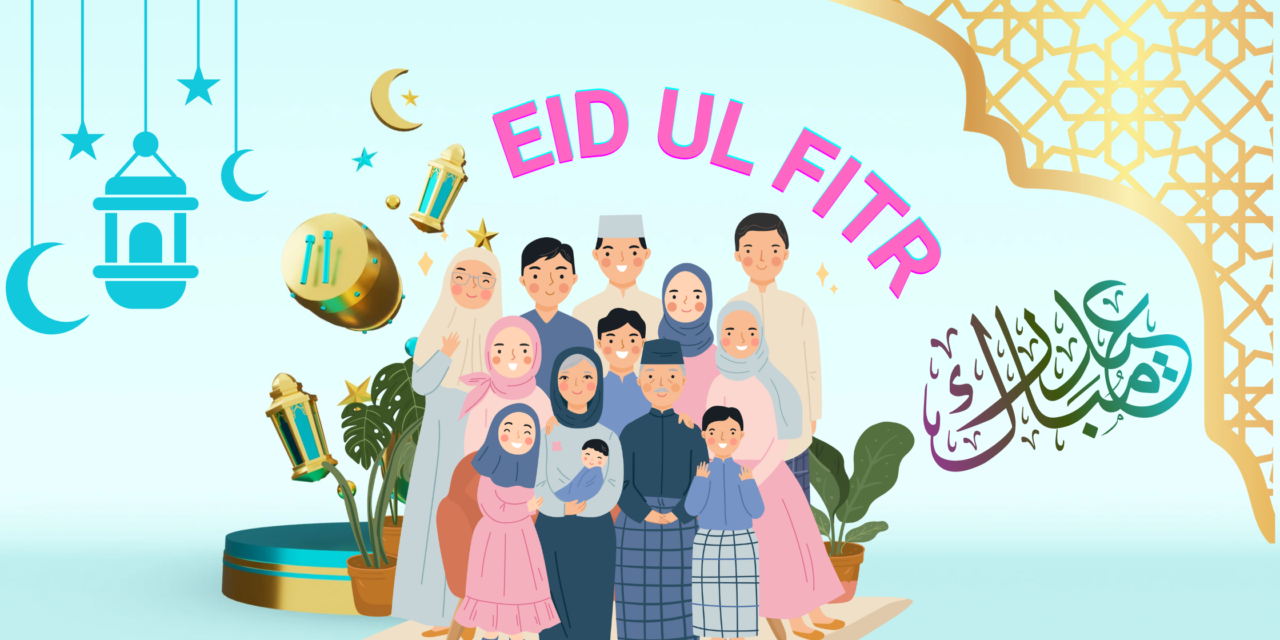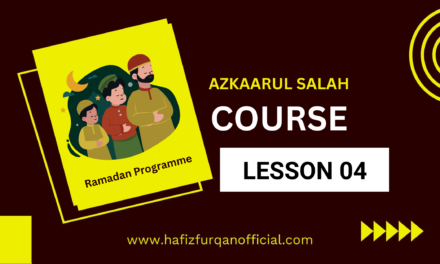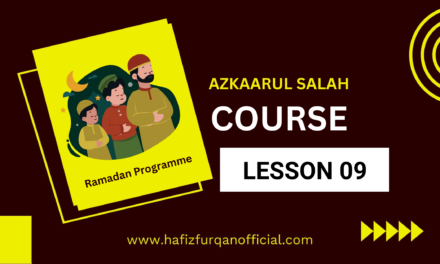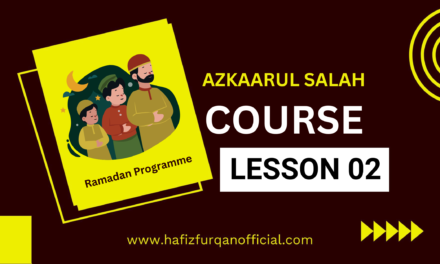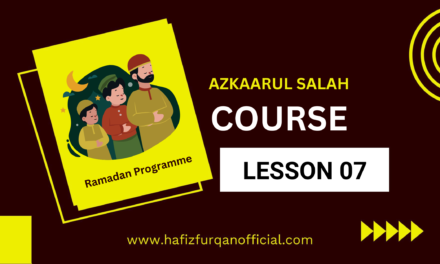Discover the preparation, recommendation, etiquettes, and Sunnah of Eid ul Fitr. in this comprehensive guide. Learn about the importance of Eid, its rituals, and how to celebrate it according to Islamic teachings.
1) Introduction:
Eid ul Fitr is a significant religious festival celebrated by Muslims worldwide. It marks the end of the month-long fasting period of Ramadan and signifies the victory of faith over temptation and worldly desires. Eid is a time of joy, happiness, and togetherness, where family and friends gather to share meals, exchange gifts, and offer prayers. In this article, we will discuss the preparation, recommendation, etiquettes, and Sunnah of Eid ul Fitr from the Quran and Hadith.
2) Preparation for Eid ul Fitr:
Preparation for Eid ul Fitr starts a few days before the actual day of the festival. Here are some essential preparations to make:
- Cleanliness: Muslims are encouraged to keep their homes and surroundings clean and tidy before Eid.
- Shopping: Muslims usually purchase new clothes, shoes, and accessories to wear on the day of Eid.
- Decorating homes: Muslims decorate their homes with lights, balloons, and other ornaments to create a festive ambiance.
- These things mentioned above are just recommended. not necessary.
3) Recommendation for Eid ul Fitr:
Muslims are encouraged to follow specific recommendations during Eid ul Fitr. Here are some of the most important ones:
- Eid prayer: Muslims should perform the Eid prayer in congregation with their community. It is a way to express gratitude to Allah for blessing them with Ramadan.
- Greeting others: Muslims should greet others with “Eid Mubarak” or “Happy Eid” to spread happiness and love.
- Charity/ Sadaqatul Fitr: Muslims should donate to the poor and needy to share their blessings with others .
- Forgiveness: Muslims should forgive each other for any misunderstandings or conflicts they may have had.
4) Etiquettes of Eid ul Fitr:
There are specific etiquettes that Muslims should follow during Eid ul Fitr. Here are some of the most important ones:
- Dress modestly: Muslims should dress modestly and avoid wearing revealing or inappropriate clothing.
- Punctuality: Muslims should arrive on time for the Eid prayer and other festivities.
- Respecting elders: Muslims should show respect to their elders and seek their blessings on this auspicious day.
- Avoiding extravagance: Muslims should avoid spending too much money on celebrations and gifts.
5) Sunnah of Eid ul Fitr:
There are specific Sunnahs that Muslims should follow during Eid ul Fitr. Here are some of the most important ones:
1 ) Wake Up Early.
2) Prepare For Personal Cleanliness, Take Care Of Details Of Clothing, Etc.
3) Take A Ghusl (Bath) After Fajr.
4) Brush Your Teeth With Miswak.
5) Dress Up, Putting On the Best Clothes Available, Whether New Or Cleaned Old Ones.
6) Use Perfume (Men Only).
7) Have Breakfast Or Eat Some Dates Or Any Sweet Dish On Eid-al-Fitr Before Leaving For Prayer Ground. On Eid-al-Adha, Eat Breakfast After Salaat Or After Sacrifice If You Are Doing A Sacrifice.
8) Pay Zakaat-al-fitr Before Salaat-al-eid (On Eid-al-fitr).
9) Go To Prayer Ground Early.
10) Offer Salaat-al-eid In Congregation In An Open Place Except When Whether Is Not Permitting Like Rain, Snow, Etc.
11) Use Two Separate Route To And From The Prayer Ground.
12) Recite The Following Takbir On The Way To Salaat And Until The Beginning Of Salaat-al-eid. On Eid-al-adha, Takbir Starts From Fajr On The 9th Zilhijjah And Last Until The Asr On The 13th Zilhijjah:
Allaho-akber, Allaho-akber. La Ila-ha Ill-lal–lah. Allaho-akber, Allaho-akber. Wa-lilahill Hamd
FAQs: Frequently asked questions regarding Eid ul Fitr:
1) What is Eid ul Fitr?
Eid ul Fitr is a significant Islamic festival celebrated by Muslims worldwide. It marks the end of the month-long fasting period of Ramadan and is a day of celebration and gratitude.
2) When is Eid ul Fitr celebrated?
Eid ul Fitr is celebrated on the first day of Shawwal, the tenth month of the Islamic calendar. The exact date of Eid ul Fitr varies each year depending on the sighting of the new moon.
3) What are some of the traditions associated with Eid ul Fitr?
Some of the traditions associated with Eid ul Fitr include performing the Eid prayer, giving charity, exchanging gifts, wearing new clothes, sharing meals with family and friends, and Giving Zakaatul Fitr.
4) What is Zakat al-Fitr?
Zakat al-Fitr is a charity given by Muslims before the Eid prayer. It is compulsory for every Muslim to give Zakat al-Fitr, and it is a way to purify one’s wealth and Worship, also it helps the poor and needy so that they Can Celebrate Eid too.
Ibn `Abbas (may Allah be pleased with him) reported:
“The Messenger of Allah (peace be upon him) ordained Zakat ul Fitr to purify the fasting person from indecent words or actions, and to provide food for the needy. It is accepted as Zakat for the person who gives it before the Eid prayer; but it is a mere Sadaqah for the one who gives it after the prayer.” [Abu Dawud and Ibn Majah]
5) Can I fast on the day of Eid ul Fitr?
No, it is not allowed to fast on the day of Eid ul Fitr as it is a day of celebration.
6) How is Eid ul Fitr celebrated?
Eid ul Fitr is celebrated by performing the Eid prayer, giving charity, exchanging gifts, wearing new clothes, and sharing meals with family and friends. Muslims also decorate their homes and visit their relatives on this day.
7) What is the significance of Eid ul Fitr?
Eid ul Fitr signifies the end of the month-long fasting period of Ramadan and the victory of faith over temptation and worldly desires. It is a day of celebration and gratitude, where Muslims express their thanks to Allah for His blessings.
8) Can non-Muslims participate in Eid ul Fitr celebrations?
Yes, non-Muslims are welcome to participate in Eid ul Fitr celebrations. Muslims often invite their non-Muslim friends and neighbors to share meals and exchange gifts on this day.
9) How long does Eid ul Fitr last?
Eid ul Fitr is celebrated for one day, but in some countries, it may be celebrated for two or three days.
10) What is the difference between Eid ul Fitr and Eid ul Adha?
Eid ul Fitr marks the end of the month-long fasting period of Ramadan, while Eid ul Adha commemorates the willingness of Prophet Ibrahim PBUH to sacrifice his son Prophet Ismail PBUH for the sake of Allah. Eid ul Adha is celebrated on the 10th day of Dhul Hijjah, the last month of the Islamic calendar.
11) Can I give Zakat al-Fitr in cash?
Yes, you can also give Zakat al-Fitr in the form of food, such as wheat, rice, or dates.
12) Can women attend Eid prayer?
Yes, women can attend Eid prayer, but they should observe proper Islamic dress code and follow the etiquettes of the mosque.
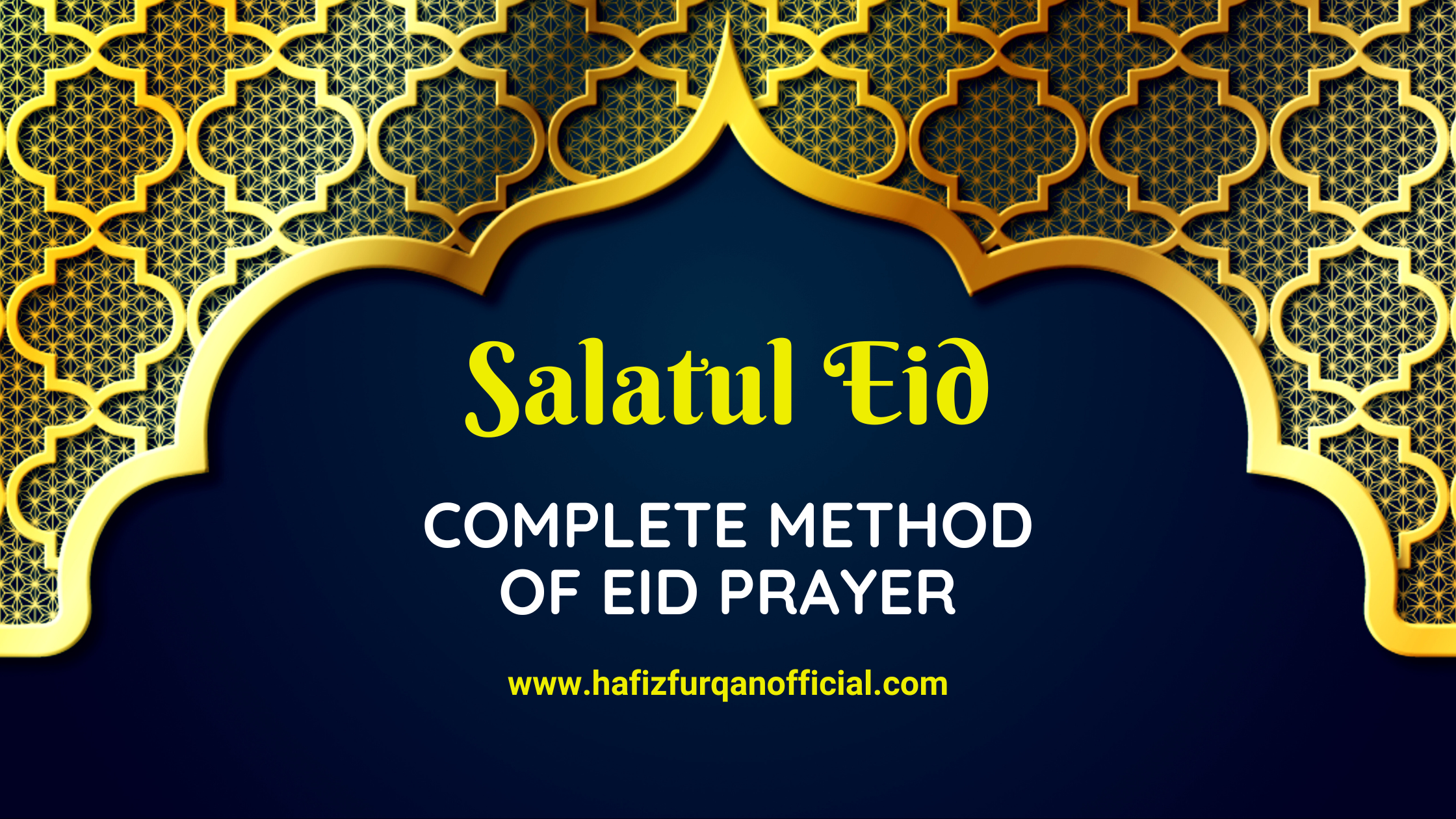
Salatul Eid/ Eid Prayer:
The Eid Salah, also known as the Eid prayer, is a significant religious observance for Muslims that takes place after the Fajr prayer on the first day of Eid.
EID IS A SPECIAL OCCASION AND ONE OF THE THINGS WHICH MAKES IT SO IS THE EID-UL FITR AND EID UL ADHA CONGREGATIONAL PRAYER.
SALATUL EID (PRAYER) CONSIST OF TWO RAKATS WITH SIX TAKBEERS IN a CONGREGATION OF MUSLIMS FOLLOWED BY THE KHUTBA OF EID.
FIRST RAKA’AT
FIRST MAKE THE NIYYAH (INTENTION) BY SAYING
“I INTEND TO DO TWO RAKAT BEHIND THE IMAM FOR EID PRAYER ALONG WITH SIX ADDITIONAL TAKBEERS.
FOLLOW THE IMAM BY RAISING BOTH HANDS UP TO THE EARS,
SAY “ALLAHU AKBAR”, THIS IS THE FIRST TAKBIR TO ENTER IN THE NAMAZ.
BEGIN RECITING (THANAA) “SUB HA NA KAL L’A HUMMM MA TILL END“
NOW IMAM WILL SAY TAKBEER AGAIN 3 TIMES EACH TIME WE HAVE TO RAISE OUR HANDS TO OUR EARS, 1ST TWO TIMES WE LET OUR HANDS DOWN TO OUR SIDES BUT 3RD TIME WE FOLD OUR HANDS FOR LISTENING TO THE IMAM RECITING SURAH FATIHA AND OTHER SURAH AS FOLLOWS.
TAKBEER, SAY “ALLAHU AKBAR” (WITH THE IMAM), THEN LET THE HANDS DOWN
TAKBEER, SAY “ALLAHU AKBAR” (WITH THE IMAM), THEN LET THE HANDS DOWN
TAKBEER, SAY “ALLAHU AKBAR” (WITH THE IMAM), THEN CLASP THE HANDS,
LISTEN TO THE IMAM RECITING THE FATIHAH AND A SURAH. AFTER THE IMAM COMPLETED THE FATIHA YOU QUIETLY SAY “AMEEN”
GO INTO RUKU (THE BOWING POSITION) AND YOU SAY “SUBAHAANA RABBIYAL AZEEM”
STAND UP STRAIGHT WHEN HE SAYS “SAMI ALLAHU LIMAN HAMIDAH”, AND SAY “RABBANA LAKAL HAMD” IN A LOW VOICE.
GO INTO THE 1ST SAJDAH AND YOU SAY “SUBAHAANA RABBIYAL AA’LA”
NOW SIT UP FROM THE FIRST SAJDAH IN JALSA POSITION (SITTING POSITION BETWEEN THE TWO SAJDAHS)
NOW GO INTO THE 2ND SAJDAH AND YOU SAY “SUBAHAANA RABBIYAL AA’LA“. AFTER THAT SAY TAKBEER AND STAND UP FOR 2ND RAKAH.
SECOND RAKA’AT
RISE UP TO PROCEED TO THE NEXT RAKA’AT,
IN THE SECOND RAKAAT IMAM WILL FIRST RECITE SURAH FATIHA AND THE OTHER SURAH THEN WILL SAY TAKBEER 4 TIMES, ON 1ST 3 TAKBEERS WE RAISE OUR HANDS UPTO THE EARS AND LET OUR HANDS DOWN TO THE SIDES AND ON 4TH TAKBEER WE WILL GO INTO RUKU WITHOUT RAISING OUR HANDS UP TO EARS.
(TAKBEER, SAY “ALLAHU AKBAR” (WITH THE IMAM), THEN LET THE HANDS DOWN
TAKBEER, SAY “ALLAHU AKBAR” (WITH THE IMAM), THEN LET THE HANDS DOWN
TAKBEER, SAY “ALLAHU AKBAR” (WITH THE IMAM), THEN LET THE HANDS DOWN
TAKBEER, SAY “ALLAHU AKBAR” (WITH THE IMAM), THEN GO INTO RUKU THE BOWING POSITION) AND YOU SAY “SUBAHAANA RABBIYAL AZEEM” JUST AFTER THE FOURTH TAKBEER (WITHOUT REMOVING THE HANDS)
STAND UP STRAIGHT WHEN HE SAYS “SAMI ALLAHU LIMAN HAMIDAH”, AND SAY “RABBANA LAKAL HAMD” IN A LOW VOICE.
GO INTO THE 1ST SAJDAH AND YOU SAY “SUBAHAANA RABBIYAL AA’LA”
NOW SIT UP FROM THE FIRST SAJDAH IN JALSA POSITION (SITTING POSITION BETWEEN THE TWO SAJDAHS)
NOW GO INTO THE 2ND SAJDAH AND YOU SAY “SUBAHAANA RABBIYAL AA’LA”
AFTER THIS, YOU SIT FOR THE COMPLETE TASHSHAHUD: YOU RECITE AT-TAHIYYAT, DUROOD IBRAHIM, AND DUA AFTER DUROOD IBRAHIM.
TURNING TO YOUR FACE TO THE RIGHT FIRST AND SAYING “ASSALAMU ALAIKUM WA RAHMATULLAH” AND THEN TO HIS LEFT AND DOING THE SAME
THEN DO DUA WITH IMAM, AND DO NOT STAND UP KEEP CALM AND SILENT AND LISTEN TO THE KHUTBA OF EID CAREFULLY. NOW EID GATHERING HAS BEEN COMPLETED. EID MUBARAK!!
SOME IMPORTANT NOTES REGARDING EID:
1) THE EID PRAYER IS NECESSARY FOR MEN AND LEAVES IT A GREAT SIN.
2) A LOT OF PEOPLE DO NOT LISTEN TO THE EID KHUTBA OR START TALKING DURING THE KHUTBA IT’S ALL NOT ALLOWED.
3) WHILE GOING FOR EID UL FITR RECITE THE TAKBEER TASHREEQ WITH A SOFT VOICE BUT FOR EID UL ADHA RECITE IT LOUDER.
Conclusion:
Eid ul Fitr is a joyful occasion for Muslims, and it is essential to celebrate it according to the teachings of the Quran and Hadith. In this article, we have discussed the preparation, recommendation, etiquette, and Sunnah of Eid ul Fitr. By following these guidelines, we can ensure that we celebrate Eid in the best possible manner and that we can receive Allah’s blessings and mercy.

